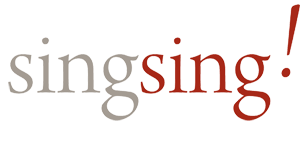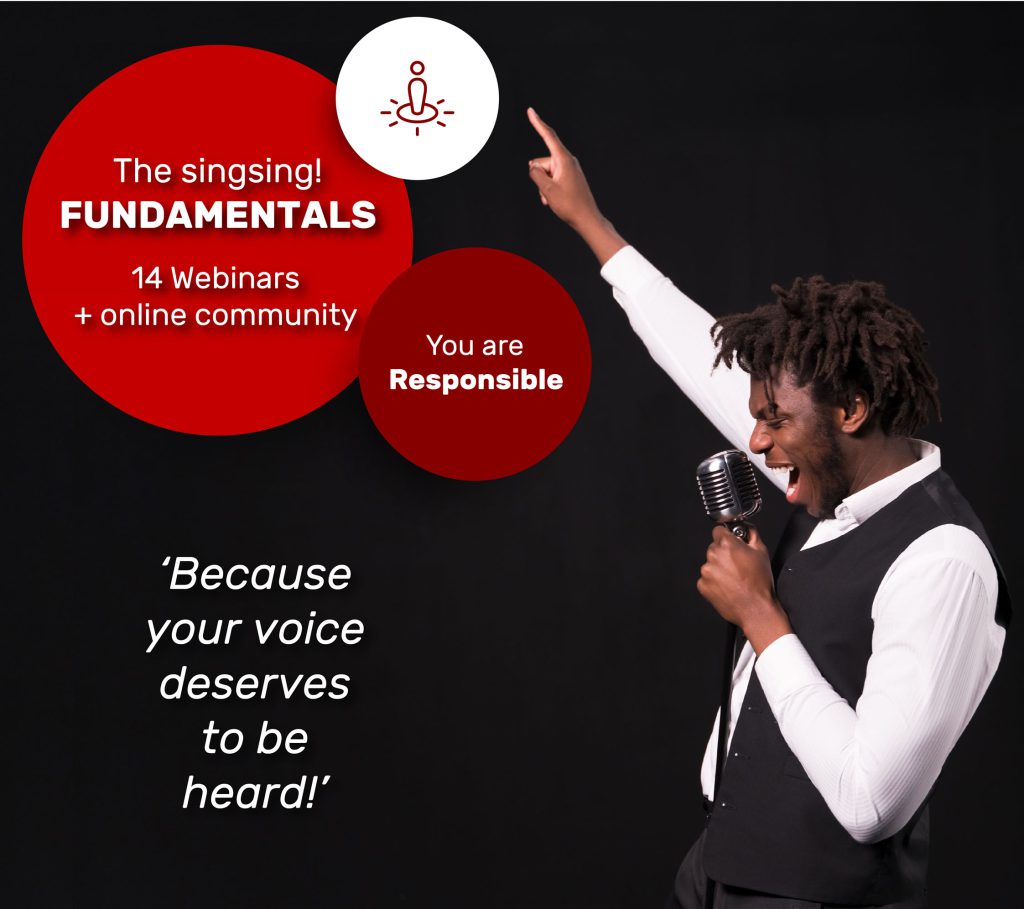
Who is setting your goals?
25/10/2013
In What’s the role of a voice teacher?, I have talked about how to prepare the first session with a new teacher. Today, I will give you some tools for taking the course of a lesson into your own hands.
Sometimes, it’s very tempting to take a subordinate position towards your teacher during a session. I’m telling you: don’t! I know, your teacher is very wise and an incredible singer, has years of experience, great taste and amàzing technical skills. It is SO difficult not to feel overwhelmed by their talent… OK, let’s be serious 😎
Why are you in the studio? Why did you pay them good money? Why did you bother to get in your car (or on your bike) and drive all the way to have this lesson? If you’re hesitating even only for a second right now, I suggest you go back home and think about it. If you are able to answer these questions right away: Good!

Your teacher needs your input in order to be able to help you the best they can. If their approach is like mine, the session will start with questions that resemble these a lot:
- Do you have any reflections / questions on the last lesson?
- How did you work at home?
- Did you progress?
- Did you encounter any problems?
- Do you have thoughts / questions on all this?
- How can I be of service to you today?
That last question is the most important one, in my opinion. After all, your most important goal as an artist – and I hope you consider yourself to be an artist – is to find and develop your own personality. You don’t want to copy the personal taste of your teacher. Of course you can be inspired by it. But copying it, is something else. Your teacher will teach you the basic technical skills that every singer needs. They should also challenge you to try sounds, styles and techniques that you have never tried, in order to broaden your view on your own voice and artistic identity. But what you do with those techniques, is completely up to you. Don’t forget, technique is only a tool.
The real goal is telling your story. Your audience doesn’t care about your superb technique – at least not when your audience is not a room filled with voice nerds ;o) Your audience wants to be touched by your story. And you are the only one that knows how that story goes. So you are the one that has to decide which techniques you need in order to have the freedom to tell it. That is why yoù have to decide what you want to work on during the lesson. Of course, there are also moments when you need your teacher to take charge. Sometimes, being guided and inspired is exactly what you need.
And what about during the session? Have you ever had the audacity to say things like “This is not what I want to work on.”, “I’d like to go on to my next question.” or “This is not the sound I’m looking for.”? If you have: Good! ;o)

Let’s face it: Your teacher is also a human being that can end up being caught up in a certain subject. Maybe in a sound that they really like – but you don’t. Or they are REALLY ambitious for you and want you to nail the sound a third higher than you need, while you want to use the remaining time for something else. Maybe it’s more important for you to work on the verse instead of the chorus (which you have been working on for already half an hour…). Or your teacher can’t stop talking about some theory and you just really want to sing…
It’s possible that your teacher will not agree with you because, for example, you need to work on this first, in order to be technically able to work on what you brought to the table today. But if you have expressed your opinion and feeling, you will have created an opportunity for functional communication. And you will not go home frustrated, because you mistakenly feel you haven’t dealt with the goals you had set.
So, if you want to get the most out of your session, think about the questions I lined up and especially the last one. Tell your teacher all the things you want to work on in the beginning of the lesson, so they can divide the lesson or save some of the issues for another lesson. Stay alert during the session, keep track of the time and never stop communicating. A voice lesson is supposed to be a two way street.
Oh, and one more thing. Do not EVER say something like this, 10 minutes before the end of the session: “Oh, I have an audition tomorrow. Can we just go through this song one time?” At least if you don’t want to witness your teacher having a heart attack 🤨
I wish you lots of fun working with your teacher!
Do you want to take responsibility for your vocal growth into your own hands after reading this blog?
Subscribe to the Library, watch the webinar You are Responsible and dive deep into what I consider the most important questions you should ask yourself, when embarking on a journey of growth. Whether it be by yourself, or with the guidance from a teacher / coach.

Fiza - Singer & Tour guide
Fiza - Singer & Tour guide

As always, feel free to send me your thoughts, questions, and feedback in the comments below this blog, via the contact form or in the singsing! online community
Cordially,
Sarah


